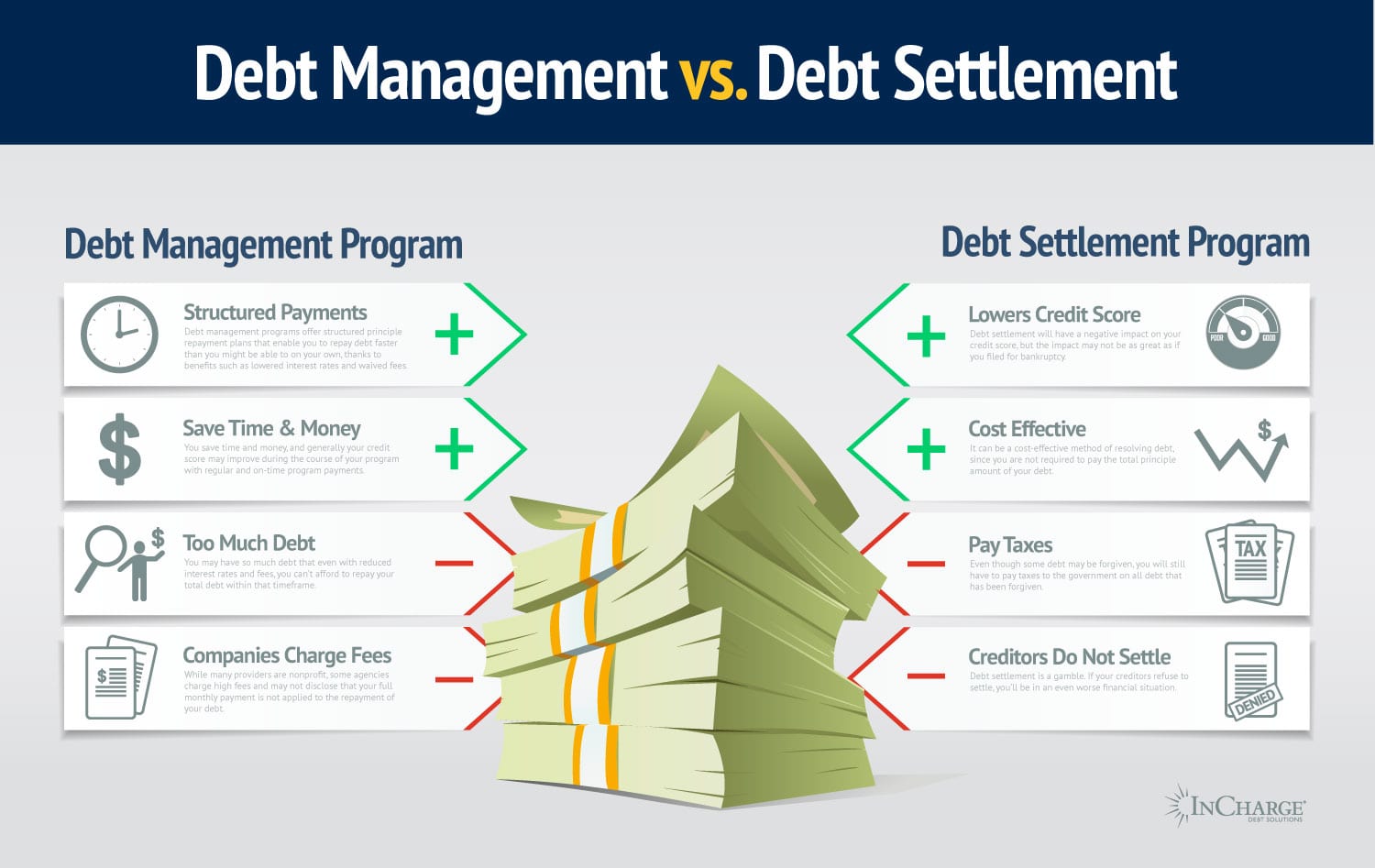Comprehending the Duty of Debt Management Plan Services in Financial Planning
Comprehending the Duty of Debt Management Plan Services in Financial Planning
Blog Article
Professional Tips and Approaches for Carrying Out a Successful Financial Obligation Administration Plan
When it involves navigating the intricacies of debt administration, having a well-balanced strategy is crucial for achieving monetary security. Executing expert suggestions and techniques can make a considerable difference in your journey in the direction of financial debt relief. From analyzing your current economic standing to discussing with lenders, each action plays a crucial role in shaping a successful financial debt management strategy. By recognizing the complexities of financial debt monitoring and adopting tried and tested methods, people can lead the way for a more safe and secure economic future.
Examining Your Present Financial Scenario
Before embarking on a financial debt administration plan, it is critical to extensively examine your present economic standing. Comprehending your monetary situation is the foundational step towards properly taking care of and decreasing your debt.

Establishing a Realistic Budget Plan
Comprehending your existing economic circumstance lays the groundwork for establishing a practical budget plan that aligns with your financial obligation management objectives and financial capacities. When creating a budget plan, it's vital to properly track your revenue, expenses, and debt obligations. Start by providing all resources of revenue, including wages, perks, and any type of added incomes. Next, describe your repaired expenses such as rental fee or home mortgage payments, utilities, insurance policy, and financing payments. Variable expenses like groceries, enjoyment, and transport ought to additionally be accounted for. By classifying your expenses, you can determine locations where you may need to reduce to maximize funds for financial obligation payment.

Focusing On and Dealing With Financial Debts
To efficiently restore control of your funds and job towards monetary stability, focusing on and tackling your financial debts is a crucial step in your financial obligation administration strategy. Recognize high-interest financial debts that are costing you the most cash and focus on paying them off.
After identifying your high-interest financial obligations, think about making use of strategies like the financial obligation snowball or financial obligation avalanche technique to pay them off methodically. The debt snowball approach entails settling the tiniest debts initially, while the financial debt avalanche approach prioritizes financial debts with the highest rate of interest. Select the method that lines up ideal with your financial pop over to this site objectives and motivates you to keep making progress.
Furthermore, consider bargaining with lenders for lower rates of interest or setting up a payment strategy if you're battling to fulfill your existing commitments. Looking for support from a debt counselor or monetary consultant can likewise provide useful insights and support on how to properly tackle your debts - debt management plan services. By prioritizing and resolving your financial debts strategically, you can pave the means towards a debt-free future and improved financial well-being
Bargaining With Lenders
When involving in financial obligation monitoring, negotiating with financial institutions is an essential action in the direction of finding equally valuable services for financial obligation payment. Prior to launching negotiations, it is vital to have a clear understanding of your economic scenario, including your revenue, expenses, and the overall quantity of financial debt owed.
:max_bytes(150000):strip_icc()/DebtRelief-TaxSCImage1-cff6f7bdca724678a200556285996221.png)
Structure Healthy Financial Habits
Including consistent budgeting methods is vital for cultivating healthy monetary routines. Budgeting enables individuals to track their income and expenditures, enabling them to make educated choices concerning their monetary priorities. Setting particular monetary objectives, such as saving for emergencies or retirement, can supply a clear roadmap for managing cash effectively.
Another key element of building healthy and balanced economic practices is living within one's ways. This includes investing less than what is earned and preventing unneeded debt. Embracing a penny-wise state of mind and distinguishing between demands and desires can assist individuals make more prudent spending selections.
Frequently reviewing economic statements and checking credit report reports are critical habits that advertise economic understanding and duty. By remaining informed about their monetary standing, people can determine potential problems early on and take positive steps to resolve them.
Additionally, establishing a cost savings behavior, even with tiny amounts, can add considerably to long-lasting financial safety and security. Saving routinely not only constructs a monetary pillow for unforeseen costs yet likewise fosters a feeling of discipline and obligation towards finance. By continually practicing these behaviors, individuals can lay a solid foundation for a steady economic future.
Verdict
In final thought, executing a successful financial obligation monitoring plan calls for a thorough evaluation of one's economic circumstance, the advancement of a reasonable budget, focusing on and dealing with financial obligations, bargaining with financial institutions, and structure healthy and balanced monetary routines (debt management plan services). By visit this site complying with these professional ideas and methods, individuals can take control of their financial this content resources and work towards achieving economic stability and flexibility from financial debt
Understanding your existing monetary circumstance lays the groundwork for developing a practical budget plan that lines up with your debt management objectives and economic capacities.To properly regain control of your finances and work in the direction of monetary stability, prioritizing and tackling your financial obligations is an essential action in your financial debt management plan.After identifying your high-interest debts, consider making use of approaches like the financial debt snowball or financial debt avalanche technique to pay them off systematically. The financial obligation snowball method includes paying off the smallest financial debts first, while the financial obligation avalanche technique prioritizes financial debts with the greatest passion rates.When involving in financial obligation monitoring, bargaining with creditors is a critical step towards finding equally useful solutions for debt payment.
Report this page